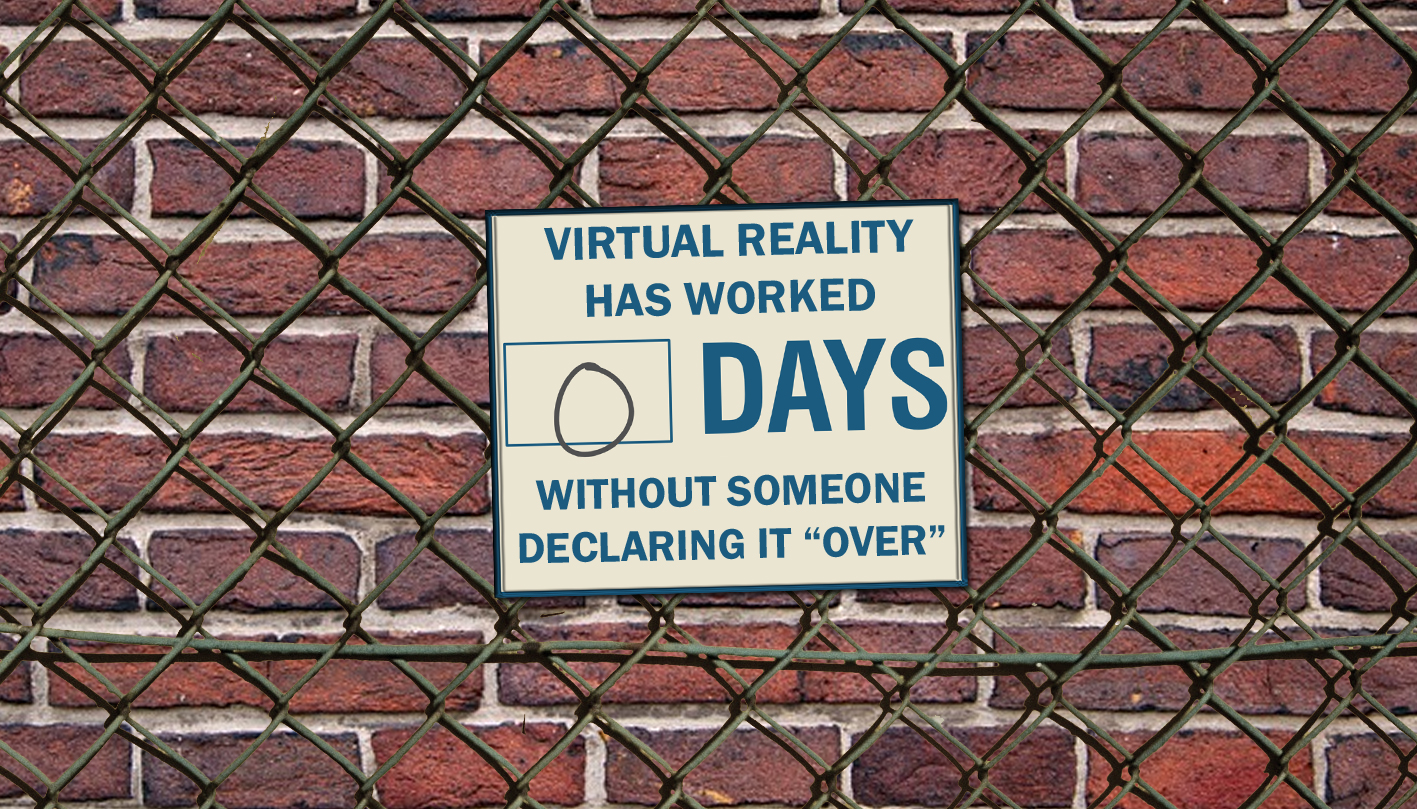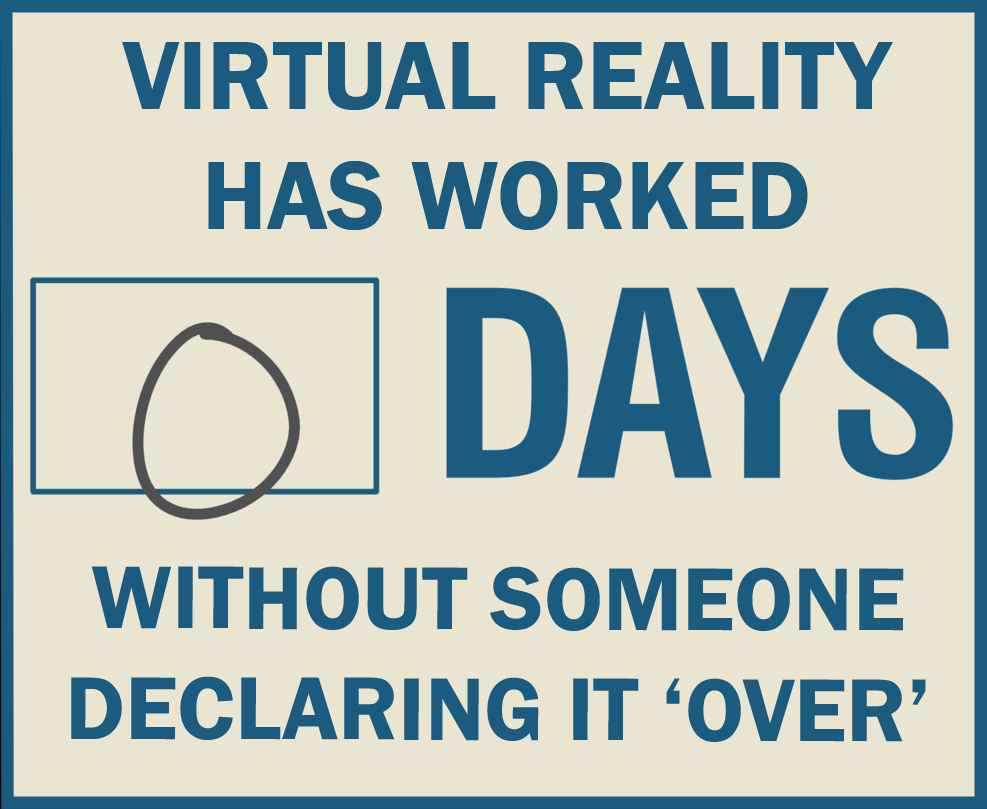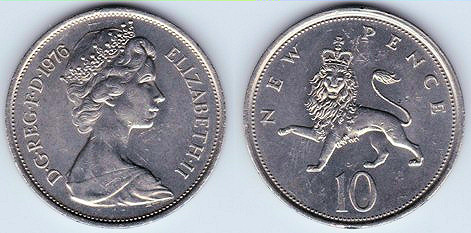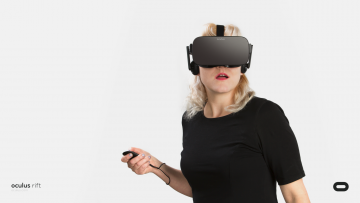
VR Vs. DOOOOOM! Pt 2: The Flip Side Of The Headline
You take a regular coin out of your pocket. The coin has two sides. You flip it. At this point you’ll likely think there are two obvious outcomes, but you and I know that’s not how reality works. There’s, more likely, three possibilities as to what can happen. The first is it lands on heads, the second tails, the third option has the coin hit the ground first on its edge and bounce off somewhere. Probably under your sofa or something. The result being that you don’t know what it landed on and you’re also now probably down 10p if you didn’t see were the blasted thing went to, and after five minutes of looking you frankly don’t care anymore.
Hello everyone, and welcome to another edition of VR vs.
Last week I got a bit serious and discussed one of the previous week’s stories from elsewhere that I didn’t agree with, namely how the information that was coming out of the Wall Street Journal wasn’t making a lick of sense based on what we actually knew from the weeks prior. And how despite the fact it didn’t tie in with established events it was enough to amusingly set people off on another ‘VR is dead’ spiral. Well, for something that is apparently dead it’s acting pretty sprightly. Should I be expecting a George A. Romero movie about all this?
At the time I did mention there was a second story I wanted to look into that had generated a similar wave of comments on other sites that prophesied how things were doomed. Honestly, if we ever get an office I actually work out of I want this sign in my office.
In any case, the other story in question was one referring to gamesindustry.biz about the results of a survey. Yes, our old friend statistics are back.
In this instance however it wasn’t the results of marketing analysis, telling us how [Technology] is going to dramatically increase in use by 40% by 2021 – it always seems to be 2021 at the moment – and be worth an otherwise unfathomable number of millions or billions. It was instead an actual survey of actual VR professionals. Which, frankly, is great to see and it makes facinating reading as it goes between content creators and those working in VR technology, looks into the split between ‘tethered’ (PC and console) and mobile and even breaks down what areas those surveyed are working in. A handy graphic the next time someone says about VR only mattering/existing in the games industry,
It also provides some unintended amusement. Who would’ve ever guessed that the thing content creators believe is the biggest barrier to mass consumer adoption of VR is the price of hardware? Or that those working with VR Tech would say it was the lack of content?
However the article I am referencing to focused on one set of results and reads: “1-in-4 VR pros say biz growth disappointed in 2016”. Yes, 26% of those who were surveyed said that the growth of their business – or biz, if you really want to call it that – had been “weaker than hoped”. (More precisely it is 29% for those on the hardware side and 22% for those on the creative side.) This was all the evidence needed of course for the next flurry of early obituaries for the industry. It was reported as this in a number of places but, as with that coin there is another side as one commenter pointed out..
“That’s not bad when you flip it – so 3 out of 4 developers had their growth expectations met or exceeded? I’m no VR evangelist, but that seems like a good hit-rate for any industry.”
And it is. In an industry still trying to build up its core audience and even still figuring out what can even be done in the first place what works, having 44% of the content creators and 47% of those in the hardware space declaring their growth to be “strong” or “very strong” I would say is pretty darn good. Especially as many are start-ups, and historically the longevity of new businesses (in the UK, at least) is not that good.
In short, as always be sure to look at the big picture. Because unfortunately, a negative is far more discussion worthy than a positive and here it is easy to leap from “weaker than hoped” to “failing” despite that not necessarily meaning the case.
Your can say your coin did not land on tails five times out of ten but that doesn’t mean it never landed on heads.
You can read that VRX/VR Intelligence survey here.
This article was originally written by the author for VRFocus.





![Private: [ID: aKYZuALirtw] Youtube Automatic](https://lastminutecontinue.com/wp-content/uploads/2024/10/private-id-akyzualirtw-youtube-a-360x203.jpg)


